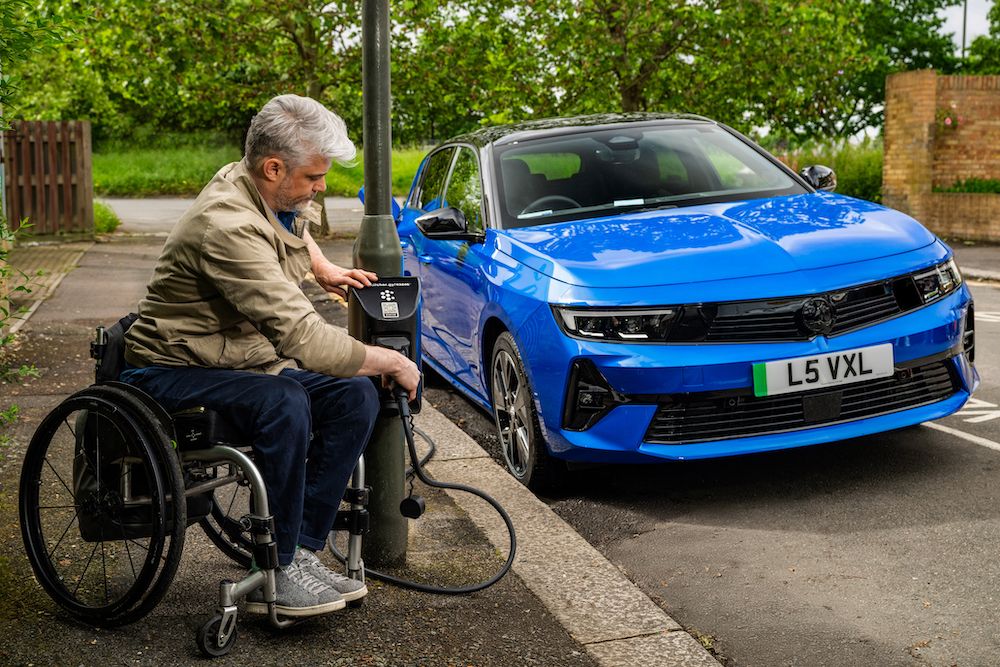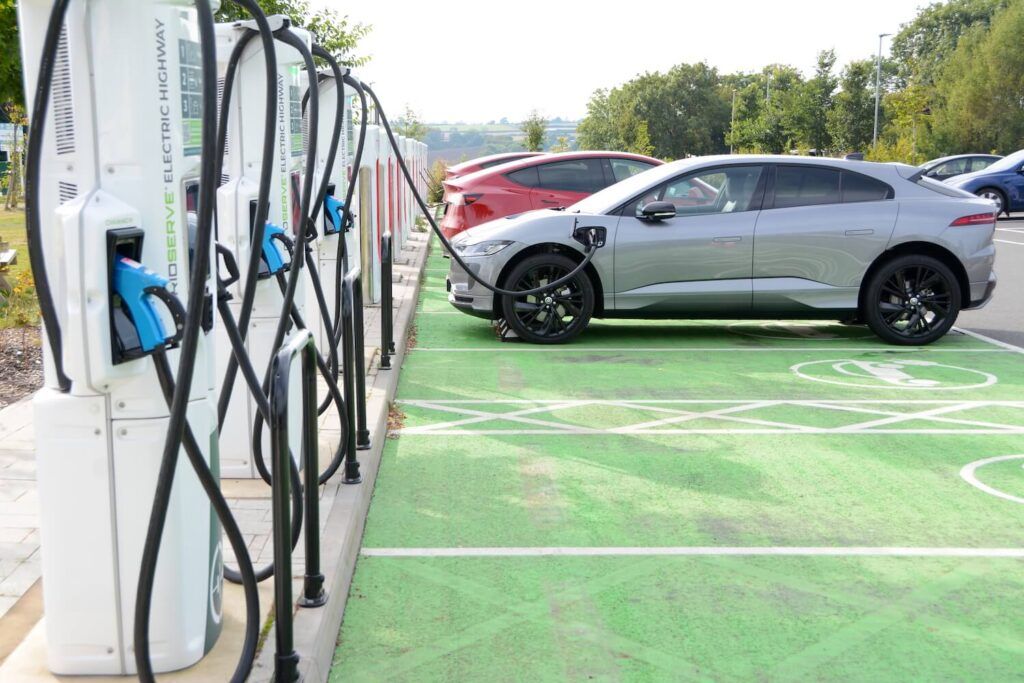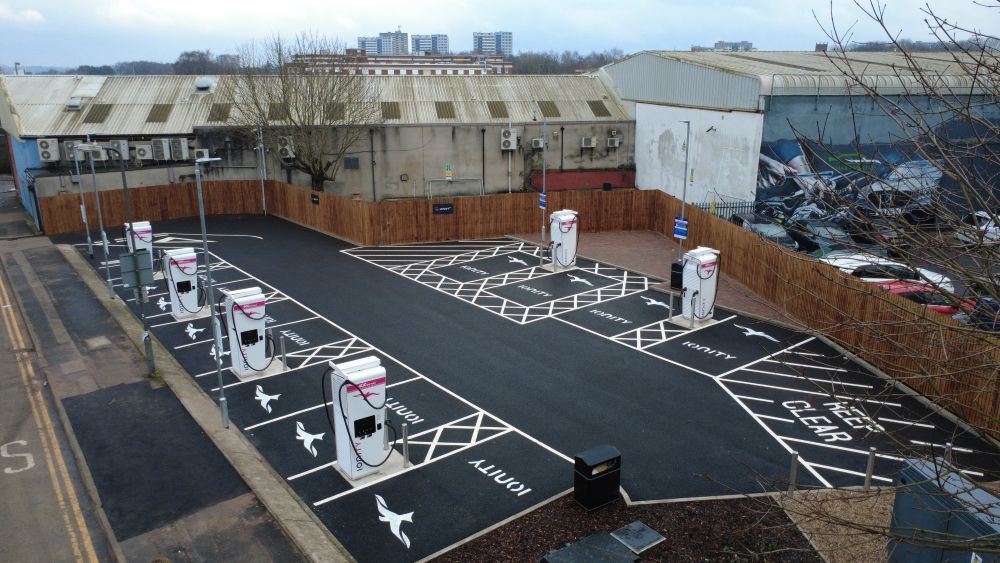More than a third of UK councils do not provide any on-street electric vehicle (EV) charging suitable for disabled drivers, according to new Freedom of Information (FOI) research by Vauxhall.
In the exclusive new research 111 of the 289 councils who responded to Vauxhall said they have no on-street charge points that have either been specifically adapted for disabled drivers, or any that follow the British Standards Institution’s PAS 1899:2022 – the national accessible charging standard co-sponsored by the Motability Foundation and UK Government.
The new findings follow on from FOI research released by Vauxhall in 2024, assessing the considerations being given towards disabled drivers by local authorities when installing on-street residential charge points.
Compared to 2024, Vauxhall found there has been no change in the number of on-street chargers adapted specifically for disabled drivers, remaining static at 2.2% of all on-street chargers.
This is despite latest figures from the Department for Transport showing a 27% year on year increase in the number of on-street chargers across the UK as of the end of April.
The new research is part of Vauxhall’s ongoing Electric Streets of Britain initiative, which aims to support the 40% of UK households without off-street parking.
Data published in the Motability Scheme’s new EV Transition Tracker, also highlights the ongoing barriers disabled people face in the transition to EVs.
The research shows that 65% of Scheme customers will only make the shift to an EV when they have no other choice. When asked about charging 45% of customers said it’s too difficult to find nearby public charging points.
Vauxhall introduced Electric Streets of Britain in 2023, working alongside leading charging operators char.gy, Connected Kerb and SureCharge to make electric vehicle infrastructure accessible for all drivers wishing to drive an EV.
Steve Catlin, Managing Director, Vauxhall, said:
“Limited access to public charging is known to be a barrier for Britain’s disabled motorists wishing to switch to EVs – particularly those who have no home charging capability. The number of councils who do not provide charging provisions specifically for those with disabilities, as highlighted in our new research, is concerning – we need to ensure that all drivers, wherever they are, can easily find and access charge points if we are hoping to bring all drivers on the UK’s electrification journey.
“Through Electric Streets of Britain Vauxhall is continuing to encourage drivers to register their need for on-street charging near them, and for disabled drivers to say where they require specific accessible charging. As the number of on-street chargers continues to rise, we want to see the number of chargers which have been adapted for disabled drivers to grow alongside this – all drivers should be able to access public charging, whatever their need, to ensure going electric is a practical and viable option.”
Andrew Miller, Chief Executive of Motability Operations, the company which runs the Motability Scheme, said:
“We need to make sure disabled people are not left behind as the UK transitions to EVs. We hear from our customers every day and many of them tell us the same thing.
“They’re struggling with the change, and public charging is their biggest worry. This uncertainty is stopping people from making the switch – and could lead to a cliff edge transition that leaves thousands of disabled people with no access to mobility.”
Image courtesy of Vauxhall











